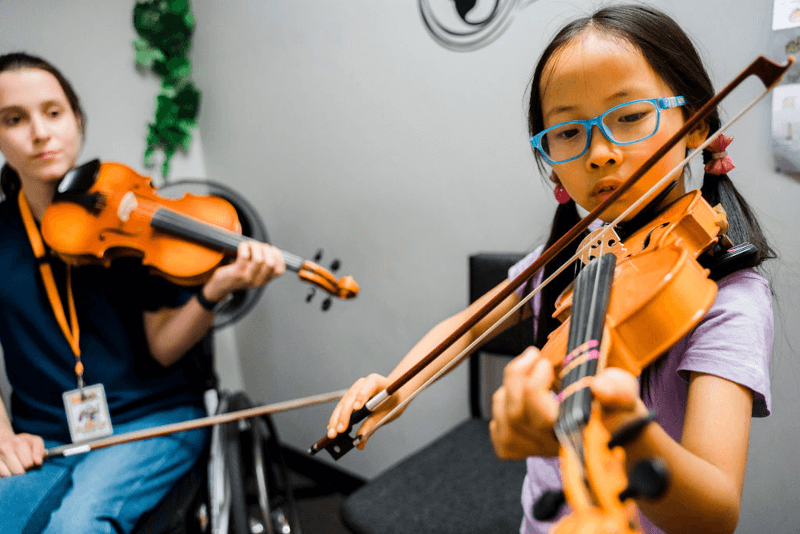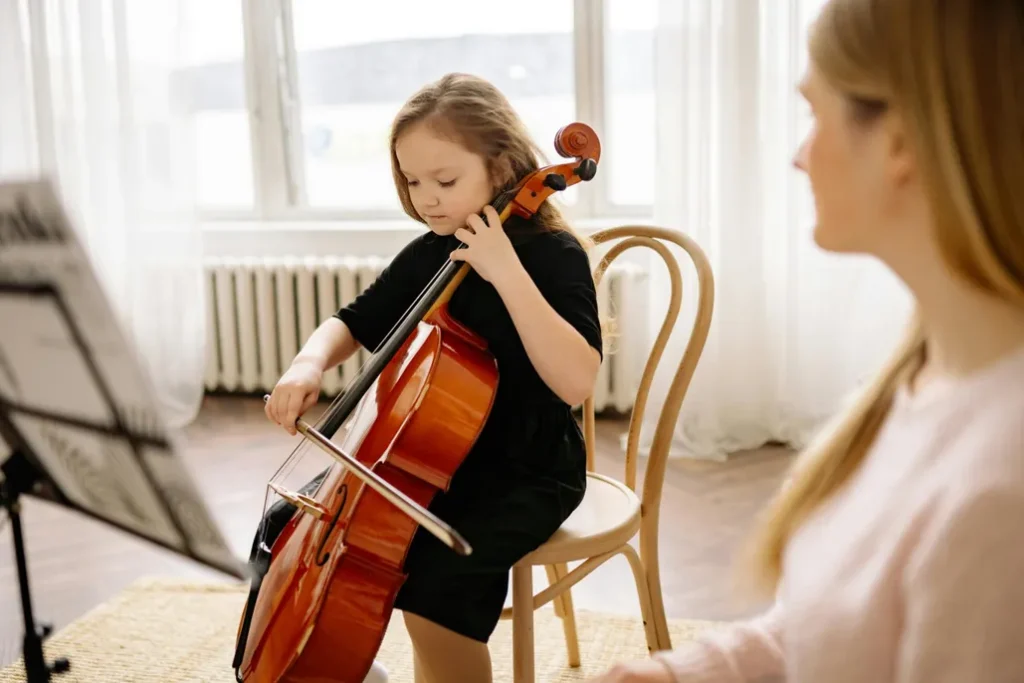Blog
“How to Find the Right Instrument Teacher for Your Skill Level”
Finding the right music teacher is a crucial step in your musical journey, whether you’re a beginner or an experienced musician looking to refine your skills. The right teacher can inspire you, provide valuable feedback, and help you reach your full potential. In this article, we’ll guide you on how to find the right instrument teacher tailored to your skill level, ensuring you get the most out of your learning experience.
1. Understand Your Current Skill Level
Before searching for a music teacher, it’s important to assess your own skill level. Are you a complete beginner, or do you already have some experience with your instrument? Knowing where you stand will help you narrow down the type of teacher that is best suited for your needs.
Beginner:
- If you are new to playing an instrument, look for a teacher who specializes in teaching beginners. They should be able to explain the basics clearly, break down complex concepts into manageable steps, and offer a structured learning path.
Intermediate:
- For those with a foundational understanding of your instrument, you may want a teacher who can help refine your technique, expand your repertoire, and challenge you with more complex music.
Advanced:
- Advanced musicians may seek out a teacher with expertise in specific areas, such as advanced technique, music theory, or performance. At this stage, you might want a teacher who is also a professional musician with experience in a particular genre.
2. Research Teacher Qualifications and Experience

Once you’ve identified your skill level, you can start researching potential teachers. Look for credentials, experience, and teaching methods that align with your goals. A qualified teacher will not only have expertise in their instrument but also a proven ability to teach students at your level.
What to Look For:
- Formal Education: Many good teachers have formal music education, such as a degree from a music conservatory or university.
- Performance Experience: A teacher with professional performance experience can provide valuable insights into live playing, musical expression, and stage presence.
- Teaching Experience: It’s also important to find someone who has experience teaching students at your skill level, as they will know how to adapt lessons to your needs.
3. Consider Teaching Style and Personality
Everyone learns differently, and it’s essential to find a teacher whose teaching style and personality align with how you learn best. Some students thrive with a structured, methodical approach, while others prefer a more relaxed, flexible teaching style. Understanding how a teacher teaches can make a significant difference in your learning experience.
What to Consider:
- Communication Style: Does the teacher explain concepts in a way that is easy for you to understand? Are they patient, encouraging, and clear in their instructions?
- Lesson Structure: Some teachers prefer a set curriculum, while others might tailor lessons based on your interests and goals. Consider which approach is most effective for your learning style.
- Personality Fit: It’s important that you feel comfortable with your teacher. A positive, motivating relationship will help keep you engaged and excited about your lessons.
4. Look for Reviews or Recommendations
Before committing to a teacher, it’s a good idea to check reviews or seek recommendations from other students or musicians. Word-of-mouth referrals can often provide insight into a teacher’s effectiveness, personality, and overall teaching style. Additionally, online reviews and testimonials can help you gauge how satisfied other students have been with their lessons.

Where to Look:
- Online Platforms: Websites like Yelp, Google Reviews, and specialized music education platforms can offer valuable feedback from other students.
- Social Media Groups: Joining local music groups or forums on social media can connect you with other musicians who have experience with different teachers and can provide recommendations.
- Local Music Schools: If you’re considering taking lessons at a school or academy, ask for recommendations from other students or faculty members who can point you to the right teacher.
5. Schedule a Trial Lesson
Once you’ve found a teacher you’re interested in, schedule a trial lesson to get a feel for their teaching style and see if it works for you. This is a crucial step to determine if the teacher is a good fit for your learning needs.
What to Expect:
- Lesson Structure: During the trial lesson, observe how the teacher structures the class. Are they organized? Do they offer feedback that is constructive and tailored to your skill level?
- Engagement and Motivation: A good teacher should be engaging and motivate you to push your limits. They should also be open to questions and provide opportunities for you to express what you’d like to focus on.
- Comfort Level: Pay attention to how comfortable you feel with the teacher. Are they friendly, approachable, and patient? Building a positive relationship with your teacher is key to long-term success.
6. Set Clear Goals Together
A great music teacher will not only help you improve your skills but also help you set and achieve specific goals. Whether you want to prepare for an exam, learn a particular piece of music, or play in a band, a teacher should be able to align your lessons with these goals.
What to Discuss:
- Short-Term Goals: Discuss what you’d like to focus on in the next few weeks or months. Are you working on technique, learning a song, or preparing for an audition?
- Long-Term Goals: Work with your teacher to develop a long-term plan. Do you want to become proficient enough to perform in public, or are you aiming for music school auditions?
- Progress Monitoring: Regularly check in with your teacher to assess your progress and adjust your goals as necessary. Your teacher should be able to provide constructive feedback and help you stay motivated.
7. Evaluate Pricing and Location
While choosing the right teacher is important, it’s also essential to consider practical factors like cost and location. Music lessons can range in price, and it’s important to find a teacher whose rates fit within your budget. Additionally, the convenience of the teacher’s location is a practical consideration, especially if you plan to take regular lessons.
What to Consider:
- Pricing: Look for a teacher who offers fair rates that match your budget. Some teachers charge per lesson, while others offer package deals. Make sure you understand the payment structure before committing.
- Location: Consider whether the teacher is local or if lessons will be held online. Local teachers are convenient for in-person lessons, while online teachers may offer more flexibility.
Conclusion
Finding the right instrument teacher for your skill level is a crucial step in your musical growth. By understanding your current level, researching teacher qualifications, and considering teaching style, personality, and location, you can ensure that your lessons are effective, enjoyable, and aligned with your goals. A great teacher will inspire you, help you overcome challenges, and guide you towards becoming a better musician. Take your time in choosing the right one, and remember, the right teacher can make all the difference in your musical journey.


